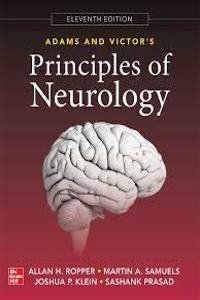Only logged in customers who have purchased this product may leave a review.
Sale!
Comparative Politics (Hardcover) | Released: 2006
By: Vidya Bhushan (Author) Publisher: Atlantic33.00% Off Original price was: ₹695.00.₹466.00Current price is: ₹466.00.
You save ₹229.00
Comparative Politics, which helps in the study of ever increasing political problems in a scientific and systematic way, has witnessed not only development on a scale never reached so far but has become more and more popular in these days. Moreover, by providing fresh and exciting new laboratories for the... Read More
In stock
Ships within 1-2 Business Days

100% Orginal Books

Easy Replacement

Certified product

Secure Checkout

On time delivery
Author:
![]()
Vidya Bhushan
Publisher Name:
![]()
Atlantic
Language:
![]()
English
Binding:
![]()
(Hardcover)
About The Book
Comparative Politics, which helps in the study of ever increasing political problems in a scientific and systematic way, has witnessed not only development on a scale never reached so far but has become more and more popular in these days. Moreover, by providing fresh and exciting new laboratories for the analysis of political developments, the emerging states of Asia, Africa, South East Asia, Latin America and Middle East, have significantly expanded the universe of Comparative Politics.
In spite of all these development, not many broad-ranged books on this discipline are available to the Indian students.
Thus, in order to introduce the Indian students to the subject of 'Comparative Politics', the present Volume though rich in material, written in simple language and handy in size, is designed to present a simplified description of different aspects of Comparative Politics.
The book will not only cater well to the requirements of those engaged in the study of Comparative Politics for Postgraduate degree in Indian Universities but also be equally useful to those interested in acquiring a core knowledge of this fast expanding discipline of Political Science.Table of Contents: 1. The Study of Comparative Politics1.1. Comparative Politics Meaning, Nature and Theory of Comparative Politics; 1.1.1. Meaning of comparative; 1.1.2. Meaning of politics; 1.1.2.1. Political activity; 1.1.2.2. Political process; 1.1.2.3. Political power; 1.1.3 Meaning of Comparative politics; 1.2. Comparative Government and Comparative Politics1.2.1. Comparative Government and Comparative Politics closely linked with each other; 1.2.2. Comparative Government Distinct from Comparative Politics; 1.3. Landmarks and Recent Trends in Comparative Politics1.3.1. Comparative Politics in pre-World War Second Era; 1.3.2. Comparative Politics in post-World War Second Era; 1.4. Approaches to the Study of Comparative Politics Traditional and New1.4.1. Traditional Approaches; 1.4.1.1. Philosophical Approach; 1.4.1.2. Historical Approach; 1.4.1.3.; 1.4.1.4. Institutional Approach; 1.4.1.5. Legalistic Approach; 1.4.2. Characteristics of Traditional Approaches; 1.4.3. New Approaches to the Study of Comparative Politics; 1.5. Theory Building in Comparative Politics Models of Political System's Analysis; 2.1. David Easton Input-Output Analysis2.1.1. Definition of Political System; 2.1.2. Environment; 2.1.3. Input Functions; 2.1.3.1 Demand and their kinds; 2.1.3.2. Regulatory Machanisms, to regulate the pace of entry of Demands into system or prevent the Demands from Entering the system; 2.1.3.2.1. Structural Mechanism; 2.1.3.2.2. Cultural Mechanism; 2.1.3.2.3. Communication; Channels; 2.1.3.2.4. Reduction processes; 2.1.3.3. Supports and their types; 2.1.3.4. Support as Fed into politicals ystem in relation to; 2.1.3.4.1. The political community; 2.1.3.4.2. The Regime or Basic Values, Political Structure and Norms; 2.1.3.4.3. Political Authority; 2.1.4. Outputs of political system; 2.1.5. Feedback; 2.1.6. Criticism; 2.2. Gabriel A. Almond's Structural Functionalism2.2.1. Political System; 2.2.2. Almond's Sevenfold classification of functioning performed by a political system; 2.2.2.1. Input (or political) functions; 2.2.2.1.1. Political Socialisation and Recruitment; 2.2.2.1.2. Interest Articulation; 2.2.2.1.3. Interest Aggregation; 2.2.2.1.4. Political Communication; 2.2.2.2, Output (or Governmental) Functions; 2.2.2.2.1. Rule making; 2.2.2.2.2. Rule application; 2.2.2.2.3. Rule adjudication; 2.2.3. Criticism; 2.3. Karl Deutsch Communication Analysis2.3.1. Science of Cybernetics; 2.3.2. The Concepts of the Communication Theory; 2.3.2.1. Concepts relating to operative structures : such as Reception system; Memory; Values complex and Decision making centres; 2.3.2.2. Concepts focusing on various flows and processes; such as Channels; Loads; Load Capacity; Responsiveness Fidelity; Recall; Combinatorial Capacity; 2.3.3. Feedback Mechanism, such as Negative Feedback; Load, Lag, Gain and Lead; 2.3.4. Other concepts, such as Learning, Innovation; Growth and Self-Transformation; 2.3.5. Criticism; 3. The Classification of Political System; 3.1. The Classical Division3.1.1. Plato's classification of Political system; 3.1.2. Aristotle's classification of Political system; 3.1.3. Polybius' classification of Political system; 3.1.4. Cicero's classification of Political system; 3.1.5. Nicolo Machiavelli's classification of Political system; 3.1.6. Jean Bodin's classification of Political system; 3.1.7. Montesquieu's classification of Political system; 3.2. Liberal Classification British and American Models3.2.1. Unitary and Federal form of political systems; 3.2.1.1. Unitary Form of Political system; 3.2.1.2. The Federal Form of Political system; 3.2.2. Parliamentary and Presidential Form of Political system; 3.2.2.1. Parliamentary Form of Political system; 3.2.2.2. Presidential Form of Political system; 3.3. Authoritarian and Totalitarian Political Regimes3.3.1. Authoritarian Regimes; 3.3.2. Totalitarian Regimes; 4. Political Parties and Political System A Theoretal Perspective; 4.1. Origin and Growth of Political Parties; 4.2. Importance and Definition of a Political Party; 4.3. Social basis of Political Parties4.3.1. The Notion of the Legitimate Party; 4.3.2. Modes of Legitimization of Parties by Natural Development; 4.3.3.; 4.3.2.1. Tribal or Cientele parties; 4.3.2.2. Ethnic parties; 4.3.2.3. Religious parties; 4.3.2.4. Class-based parties; 4.3.3. Modes of Legitimation of parties by Imposed Development; 4.4. Main Characteristics of the Political parties; 4.5. Functions of Political parties4.5.1. Uniting Sectional Interests, Bridging the Geographical differences and Inducing cohesion; 4.5.2. Identifying and Articulation of Interests; 4.5.3. The Political Recruitment; 4.5.4. To provide a Link between the Government and people; 4.5.5. To provide political education to the masses as well as widen political participation; 4.5.6. Policy formation; 4.5.7. An instrument of Political socialisation, Political Modernization and Socio-Economic Development; 4.5.8. Social Welfare Function; 4.5.9. Political parties Act as the conductors of Government, critics of government,; provide Alternative government and Stability to the political system; 4.5.10. To serve as coordinating factors between the Executive and the Legislature; 4.6. Classification of Political party system; 4.7. Structure and organization of political parties4.7.1. Party structure; 4.7.2. Party organisation; 4.7.2.1. The chique; 4.7.2.2. The mass party; 4.7.2.3. The extremist party; 4.7.2.4.; 4.8. System without party; 4.9. One party-system; 4.10. Systems of more than one party; 4.11. Two Party System; 4.12. Two-and-a-half Party System; 4.13. Multi-Party System4.13.1. Stable Multi-party systems; 4.13.2. Unstable Multi-party systems; 4.14. Position of Left and Right Parties; 4.15. Nation Building-Meaning, Importance and Political Parties as an Instrument of Nation Building4.15.1. Definition of the Term Nation-Building; 4.15.1.1. Definition of the Term Nation; 4.15.1.2. Definition of the Term National Growth; 4.15.1.3. Definition of the Term Nation-building; 4.16. Political parties as an Instrument of Nation-building; 5. Political Culture; 5.1. Political Culture Concept; 5.2. Culture and Political Culture5.2.1. Culture; 5.2.2. Political Culture; 5.3. Political Culture and Its Components Including Orientation5.3.1. Cognitive Orientation; 5.3.2. Affective Orientation; 5.3.3. Evaluative Orientation; 5.4. Types of Political Culture5.4.1. Parochial Political Culture; 5.4.2. Subject Political Culture; 5.4.3. Participant Political Culture; 5.4.4. Political Sub-Culture; 5.4.5.; 5.4.6. Mass Culture; 5.4.7. Elite Culture; 5.4.8. The Civic Culture; 5.4.9. Mixed Political Culture; 5.5. Factors Responsible for the Development of Political Culture5.5.1. History or Historical Factors; 5.5.2. Geography or Geographical Factors; 5.5.3. Socio-Economic Factors; 5.5.4. Other Determinants of Political Culture; 5.6. Contribution of the concept and Its Dimensions of Political Culture; 6. Political Socialization; 6.1. Political Socialization Concept; 6.2. Types of Political Socialization6.2.1. Manifest; 6.2.2. Latent; 6.2.3. Particularistic; 6.2.4. Universalistic; 6.2.5. Affective; 6.2.6. Instrumental; 6.2.7. Specific; 6.2.8. Diffuse; 6.3. The Agents of Political Socialization6.3.1. The Family; 6.3.2. The School; 6.3.3. Peer Groups; 6.3.4. Work or Employment Situation; 6.3.5. Mass Media; 6.3.6. Direct Contacts with Political System; 6.3.7. Religion; 6.3.8. Caste; 6.3.9. Politics; 6.4. Conclusion; 7. Political Development; 7.1. Political Development Concept7.1.1. Lucian W. Pye views; 7.1.1.1. Political Development as; the Political Prerequisite of; Economic Development; 7.1.1.2. Political Development as; the Politics Typical of; Industrial Societies; 7.1.1.3. Political Development as Political Modernization; 7.1.1.4. Political Development as the Operation of Nation State; 7.1.1.5. Political Development as Administrative and Legal Development; 7.1.1.6. Political Development as Mass Mobilization and Participation; 7.1.1.7. Political Development as the Building of Democracy; 7.1.1.8. Political Development as Stability and Orderly Change; 7.1.1.9. Political Development as Mobilisation and Power; 7.1.1.10. Political Development as One Aspect of a Multi-Dimensional Process; of Social Change; 7.1.1.11. Political Development as sense of National Respect in International Sphere; 7.1.2. Fred W., Rigg's Concept of Developmental Trap; 7.1.3. Samuel P. Huntington's Views; 7.1.4. Eisenstadt's Concept of Political; Break down; 7.1.5.; 7.1.6. David E. Apter's Views; 7.1.7. J.P. Nettl's Views; 7.1.8. Leonard Binder's Crises and Sequences in Political Development; 7.1.9. Alfred Diament's Views; 7.1.10. Illchman and UphofFs Views; 7.1.11. Marxist Views on Political Development; 7.2. Indicators of Political Development; 7.3. Conclusion; 8. Political Elites; 8.1. Political Elite Concept; 8.2. Theories of the Political Elites8.2.1. Vilfred Pareto's Theory of Elite; 8.2.2. Gaetano Mosca's Theory of Elite; 8.2.3. Robert Michael's Theory of Elite; 8.2.4. James Burnham's Theory of Elite; 8.2.5. Milovan Djilas' Theory of Elite; 8.2.6. C. Wright Mill's Theory of Elite; 8.2.7. Harold D. Lasswell's Theory of Elite; 8.3. Recapitulation of Elite Theories; 8.4. Elite and Democracy; 8.5. Criticism.; 9. Political Modernization; 9.1. Modernization and Political Modernization Concepts; 9.2. Characteristics of Modernization9.2.1. Social Mobilisation; 9.2.2. Social Differentiation; 9.2.3. Economic Change; 9.2.4. Political Change; 9.3. Problems of Modernizing Societies, Paths taken by them and the models of Political; Modernizations; 9.4. Approaches to Modernization9.4.1. Fascism; 9.4.2. Nazism; 9.4.3. Apocalytic; 9.4.4. Cyclical; 9.4.5. Evolutionary; 9.4.6. Revolutionary/Dialectical/Progressive; 9.4.7. Liberal or Laisseze-faire; 9.5. Political Modernization and Political Development; Bibliography










Reviews
There are no reviews yet.